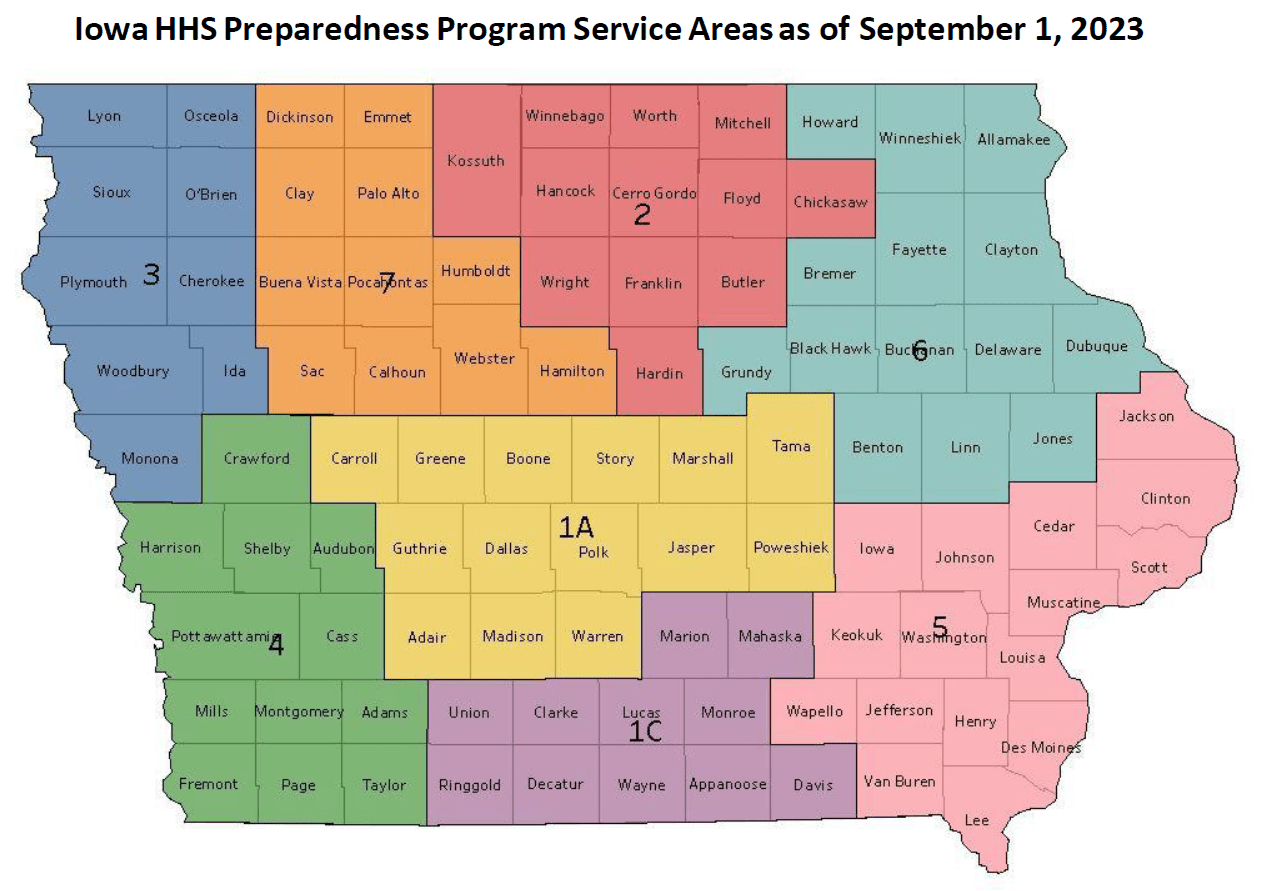Emergency Response
This Coalition is tasked with preparing for healthcare emergencies in Appanoose, Clarke, Davis, Decatur, Lucas, Mahaska, Marion, Monroe, Ringgold, Union, and Wayne counties.
Service Area 1C Healthcare Emergency Response Coalition is a multi-county coalition serving 11 counties in south central Iowa. Each county has their own local healthcare coalition. The local healthcare coalition in Marion County is called Marion County Emergency Response Coalition (MCERC), and members of the coalition include Pella Regional Health Center, Knoxville Hospital & Clinics, Emergency Medical Services (EMS), Marion County Emergency Management Agency, and Marion County Public Health Department.
Service Area 1C Healthcare Emergency Response Coalition (SA1C HERC) and Marion County Emergency Response Coalition (MCERC) have multi-disciplinary groups that bring together individual healthcare organizations to work together to respond and coordinate efforts before, during, and after emergencies. These efforts are inclusive of special needs populations. SA1C HERC and MCERC collaborate with a variety of partners to ensure that necessary medical equipment and supplies are available, timely situational updates, communication methods are available, and responders are trained and have exercised to prepare for their response to an emergency.
Visit: https://servicearea1c.com/ for more information on our Coalition.
The main areas the Health Care Coalitions (HCCs) focus on are:
- Planning & Response Coordination
- Information Sharing (Regular Situational Updates)
- Resource Coordination
- Training & Exercise
- System Development
- Group Purchasing of Supplies and Equipment

Are You Prepared?
Personal Preparedness Tips & Information
- Develop a plan. Be sure to include meeting locations, a primary and alternate evacuation routes, important contact numbers, and have an contact to check in with once you are safe. Practice your plan with family members!
- Communications. Be sure to designate an alternate method to try if the phone lines/towers are overwhelmed; for example (very brief messages) texting, emailing or instant messaging. Practice using them routinely ahead of time.
- Make a kit to last for at least 72 hours. It will need to cover all the basic needs of your family: food, water, flashlights, fresh batteries, weather radio/radio, medicines (recommended for 7 days’ worth-at least on this), personal care, any other special needs items, and don’t forget to include your pets! Talk to your family about the rules for the kit so that no one is taking from the kit and that items get rotated out as needed.
- Stay Informed. Figure out what types of disasters are most likely in your area and be knowledgeable on what you can do to prepare for them ahead of time. Then for updates watch the television, tune into a radio, or listen to your weather radio for important weather updates.
- Important Information. Keep items such as: birth certificates, insurance policies, proof of address, identification, bank account information, and medication lists/allergy info, and other similar items in a waterproof pouch or container that you have readily available to take with you if you need to leave.